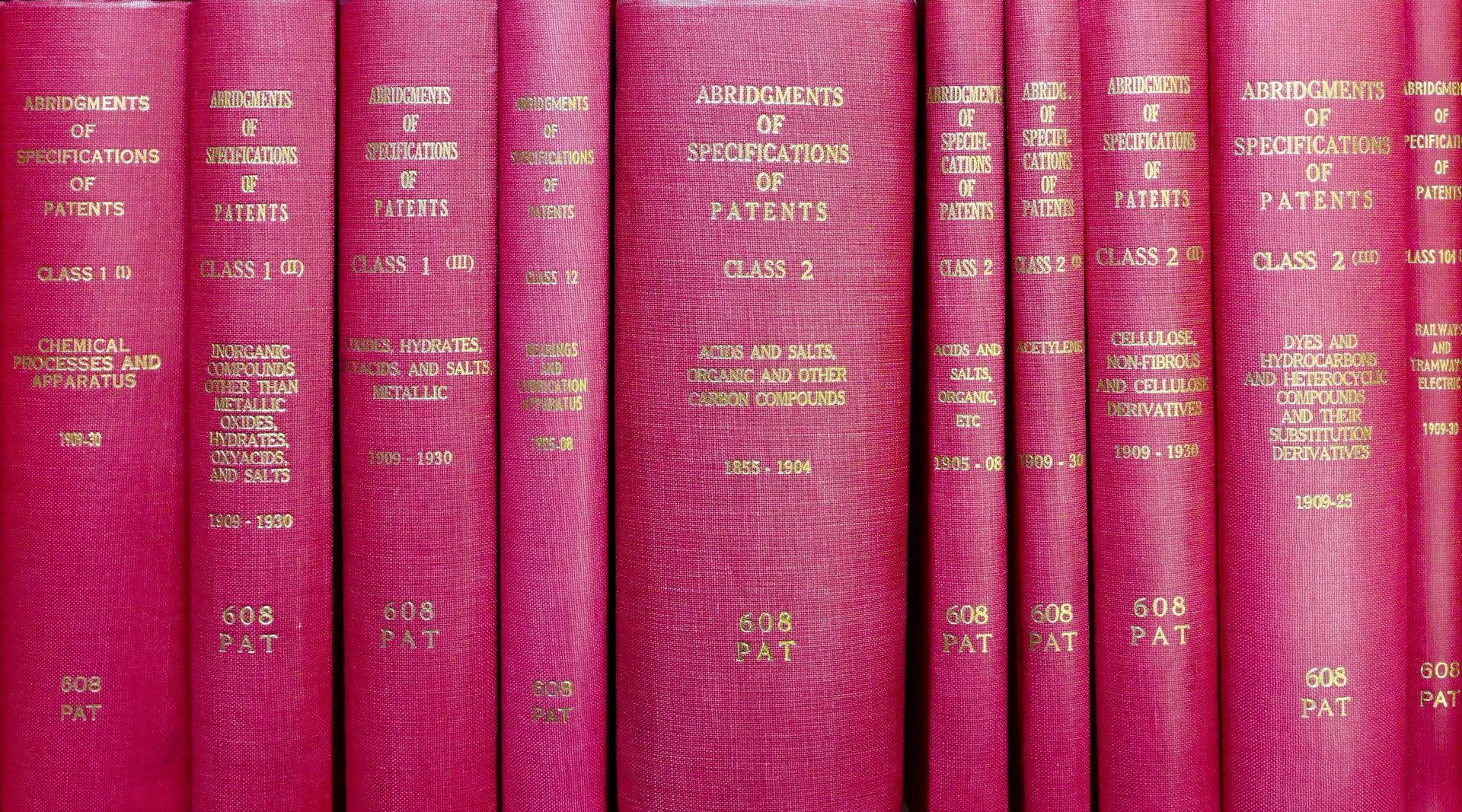Patent Valuation: How Attorneys Assess and Maximize Invention Worth for Manufacturers
Knowing exactly what your patent is worth can shape big decisions for manufacturers. Patent valuation isn't just a numbers game, it's the backbone of smart planning—whether you're building a new medical device, designing auto parts, or looking for new opportunities in construction or mobility tech. An attorney's experience often makes the difference between a rough guess and a clear, confident value, which is critical for licensing, selling, or defending your invention.
Attorneys dig deep into patent details, helping you avoid common mistakes and reveal real value. Their insights help business leaders see past short-term costs and understand long-term benefits. For more on how valuation connects to real-world returns, check out these proven Ways to Monetize Your Patents. Reliable patent valuation gives you the confidence to negotiate deals, make investments, or secure funding with facts, not just forecasts.
Understanding Patent Valuation Basics
Getting a handle on patent valuation basics is the first step in finding out what your invention is truly worth. For manufacturers working in medical devices, automotive parts, or tools for mobility and construction, knowing how to put a value on a patent helps with negotiations, sales, and growth decisions. By understanding how patents are valued and what can make that process tough, you’ll feel more confident in your business strategy and licensing talks.
 Photo by RDNE Stock project
Photo by RDNE Stock project
Key Patent Valuation Methods
Three main methods are used to figure out a patent’s value. Each one looks at things from a different angle, and attorneys often consider them all to get the clearest answer.
- Cost-Based Approach: This method adds up the expenses that went into creating the patented product or technology. Think research, design, development, testing, and bringing the idea to market. This is helpful when the patent is brand new or when there’s no market data yet.
- Market-Based Approach: Here, the value is based on similar patents or comparable sales. If there are recent deals for patents like yours, their sale price points the way. This works best when there’s an active market for your type of invention. For a deeper dive, Investopedia’s guide on how to evaluate patent value breaks down these methods with real-world examples.
- Income-Based Approach: This looks at how much money the patent could earn in the future. Attorneys estimate the cash flow likely to come from licensing, selling, or using the patent over its life. They then adjust those numbers for things like risk and time. This method is common for high-value patents that could generate sizable revenue.
Each approach comes with strengths and blind spots. Using several in combination often gets the most accurate result.
Common Patent Valuation Challenges in Industry
Patent-heavy sectors such as medical devices, automotive, construction tools, mobility aids, and defense face special hurdles when valuing patents. These industries change fast, and regulations can shift overnight, making the process tricky.
Common challenges include:
- Rapidly Changing Technology: Tech moves quickly in these fields. What’s new today could be outdated in a year. This constant change makes it tough to predict a patent’s value over time.
- Regulatory Hurdles: Every market—especially health, automotive safety, and defense—comes with tough rules and tests. A patent might seem valuable until a change in the law or a new safety standard knocks it out of the running.
- Competitive Landscape: Patents only hold their value if competitors can’t easily design around them or replace them with their own solutions. If many similar inventions come out, or a competitor finds a better workaround, your patent’s worth can drop.
- Uncertain Market Demand: For newer construction tools or mobility aids, markets may shift suddenly. What looks promising one year could lose relevance if industry needs change.
For those in high-tech sectors, even established names feel the pressure from these fast changes. If you want a more detailed look at specific struggles faced by tech-driven industries, this article on challenges in high-tech patent-intensive sectors can give additional perspective.
Clear patent valuation isn’t just helpful, it’s necessary for staying smart in business decisions and protecting your competitive position. Attorneys bring a steady hand to a process that can feel unpredictable, guiding you through each twist and turn to help you see the road ahead.
The Attorney’s Role in Patent Valuation
Patent valuation is never just a numbers exercise, especially for manufacturers who rely on intellectual property to drive business. Attorneys help companies see more than just potential profit—they look beneath the surface to spot legal risks, market realities, and pathways for growth. Let’s take a closer look at exactly how attorneys support a proper and practical valuation process for your patents.
 Photo by Pavel Danilyuk
Photo by Pavel Danilyuk
Patent Portfolio Assessment and Due Diligence
Attorneys start by getting the full picture of your current patent holdings. They:
- Review each patent in detail: Not all patents in your portfolio carry the same weight. Some protect core technology, while others may have less market relevance.
- Identify gaps or overlaps: A well-built portfolio avoids repeated coverage while ensuring core products stay protected.
- Check patent status: Attorneys confirm expiration dates, maintenance fees, and ensure all paperwork is up to date.
- Evaluate breadth and scope: The broader a patent, the more valuable it can be for blocking competitors or enabling licensing.
A thorough portfolio review is not just about counting patents, but understanding their real value and their role in your business. If you’re looking to actively grow or protect your portfolio, these Strong patent portfolio tips can help you build on the advice attorneys provide.
Attorneys also perform in-depth due diligence when new patents are added, ensuring you don’t take on weak assets or hidden legal risks. For newer companies, resources like Patent Portfolio Strategies for New Companies break down the essentials.
Legal and Market Risk Analysis
A patent’s value depends on much more than what’s written in the official document. Attorneys dig into the specific legal risks tied to each patent, such as:
- Risk of infringement: Does your patent overlap with another? Could you be sued, or could your patent block a competitor?
- Strength of enforceability: If someone copies your idea, how easy is it to prove infringement? Are claims clear and defensible in litigation?
- Prior art and validity: Attorneys check if earlier inventions or scientific papers undermine your patent’s newness or value.
Market forces are also shadow players in patent valuation. Attorneys assess:
- Market demand and competitive landscape: Is your patent for a technology with growing demand or a crowded market?
- Regulatory changes: Shifts in government rules can make or break a patent’s practical use.
Industry specialists often use market analysis to support patent valuation , adding reliable data to build a solid case for worth—something attorneys blend with their legal findings for a well-rounded valuation.
Guidance on Patent Monetization and Strategy
Once a patent’s legal and market strengths are mapped, attorneys work with companies to build an actionable plan. Their input covers:
- Licensing options: Attorneys spot partners or industries willing to pay royalties to use your invention.
- Sales opportunities: If a patent is not core to your business, they help find buyers ready to pay upfront or in installments.
- Cross-licensing deals: For complex industries like automotive or medical devices, attorneys negotiate swaps or bundled deals that boost value.
Solid patent valuation helps you choose what to monetize, what to hold, and what to let go. Attorneys craft strategies tailored to your business goals and market position. For more hands-on ideas, take a look at these Patent monetization strategies , which can give you a clear starting point for turning intellectual property into business results.
With an attorney’s experience, manufacturers get a practical roadmap for both immediate revenue and long-term value—turning patents from legal paperwork into real business assets that work for you.
Best Practices for Medical Device and Manufacturing Companies
Patents are core business assets for medical device makers, component manufacturers, and tool builders. Using smart practices to value and protect these patents helps companies get the most from their investments. The steps below help you line up patent valuation with your company’s daily goals, while tapping professional support for stronger protection and better results.
Integrating Patent Valuation with Business Strategy
 Photo by Wallace Chuck
Photo by Wallace Chuck
Aligning patent valuation with your broader strategy gives you a sharp edge in crowded fields like medical devices and industrial manufacturing. Many companies make the mistake of treating patents as paperwork rather than key business drivers. Your patent valuation should connect with larger goals such as:
- Guiding R&D spend: Value guides which projects you fund or shelve, based on which patents show the most real-world potential.
- Product planning: When your team knows which inventions have market value, it can shape new product launches around these protected technologies.
- Growth and expansion: Patents with high value help secure partnerships or funding, open new markets, and block competitors.
- Portfolio management: Value assessments highlight which patents to keep, let lapse, license, or sell.
Take a step back and ask, "Does this patent support our main mission, or could it do more if licensed out?" Daily decisions about where to invest and what to protect become easier when patent value is linked closely to your strategy. Building this bridge keeps your resources focused and your competitive position solid.
For companies navigating design patent rules, check out this detailed design patent obviousness test. It’s packed with practical ways to assess and improve your portfolio in line with business needs.
Leveraging Professional Patent Services
Patent valuation can get complicated fast—especially in technical fields with strict rules and shifting markets. Professional guidance helps you avoid overvaluing unused inventions or missing out on real licensing opportunities.
Attorneys and patent specialists use industry data, financial models, and experience to accurately judge what a patent is worth. This takes pressure off your team and adds confidence when you need to:
- Set fair royalty rates
- Present assets for investment or loans
- Resolve disputes or defend against challenges
- Review portfolios for mergers or acquisitions
Working with a professional service also means you spot risks early. Attorneys check for patent overlaps, legal weaknesses, and hidden value, so you can make decisions backed by facts. If you want experienced support, Milano IP provides Comprehensive Patent Services to help you get accurate valuations and full protection.
Trusting experts can help you see patent valuation as an ongoing process, not a single event. Your company's patents become steady engines for growth, ready to power both current projects and future expansion.
Choosing the Right Patent Attorney for Valuation Needs
Selecting the right patent attorney can make or break your patent valuation process. For manufacturers in fields like medical devices, auto parts, construction tools, and military equipment, the stakes are high. You want clear advice, industry knowledge, and someone who knows how to turn your inventions into real business assets—not just legal documents.
 Photo by Kaboompics.com
Photo by Kaboompics.com
What Makes a Patent Attorney a Good Fit?
When it comes to patent valuation, having the right expertise on your side saves time and avoids costly mistakes. Here’s what sets apart a strong attorney for this job:
- Technical Know-How: Look for attorneys who understand your specific industry, whether that means complex medical devices or smart construction tools.
- Track Record in Valuation: Experience in patent valuation means they know how to spot risk factors, untapped strengths, and realistic opportunities for income.
- Attention to Detail: The best attorneys dig deep—reviewing every claim in your patent, checking prior art, and making sure nothing is missed that could change your patent’s dollar value.
- Business Mindset: Top attorneys go beyond the law; they know what buyers, partners, and investors want to see in a patent.
Choosing well gives you peace of mind, especially when an attorney translates technical jargon and legal language into everyday advice for you and your team.
Questions to Ask Before You Hire
Not all attorneys approach valuation the same way. Here are a few smart questions to bring up:
- What’s your experience with patents like mine?
- How do you value patents for companies in my industry?
- Can you explain your valuation process step-by-step?
- Do you collaborate with market analysts or financial experts?
- How do you keep up with new case law and rulings that impact patent value?
Asking these questions reveals not only competence, but also how comfortable you’ll be working with them on such an important process.
For those looking for region-specific help, learn more with this clear guide to selecting patent lawyers in Philadelphia.
Tips for Building an Ongoing Attorney Relationship
Patent valuation is rarely a one-time task. As your business grows, markets shift, and new patents are filed, keep the lines of communication open. Here’s how to get the most from your attorney:
- Share business plans early: Involve your attorney before you make big product launches or technology investments. They can spot IP pitfalls and opportunities.
- Schedule regular check-ins: Review your patent portfolio with your attorney at least annually, or whenever big business changes are on the horizon.
- Ask for plain-English explanations: Don’t settle for technical jargon. Make sure you understand both the “what” and the “why” behind value assessments.
Manufacturers aiming for growth often expand into new markets or file patents internationally, so working with an attorney who can guide you globally is a plus. For more about this, a solid international patents step-by-step guide can help set expectations.
Taking the time to find and work with the right patent attorney gives you an edge in making your patents count—not just on paper, but out in the real world where value matters most.
Conclusion
Patent valuation is more than just a financial exercise—it’s a strategy that attorneys use to unlock the full business potential of your inventions. For manufacturers in fields like medical devices, auto parts, and construction tools, getting it right means making smarter choices about where to invest and how to protect your technology.
Working with experienced legal professionals adds clarity and protects your patent assets at every stage. This support helps you avoid missteps and find new ways to monetize your innovation. When patents drive your business, making valuation a team effort with attorneys keeps your decisions grounded in facts, not guesswork.
For tailored support that matches your industry’s needs, connect with professionals like those featured at Philadelphia IP Attorney Services. Thanks for reading—let us know your biggest questions about patent valuation, or share what’s helped your company get the most from its intellectual property.
Get a Free Case Evaluation



